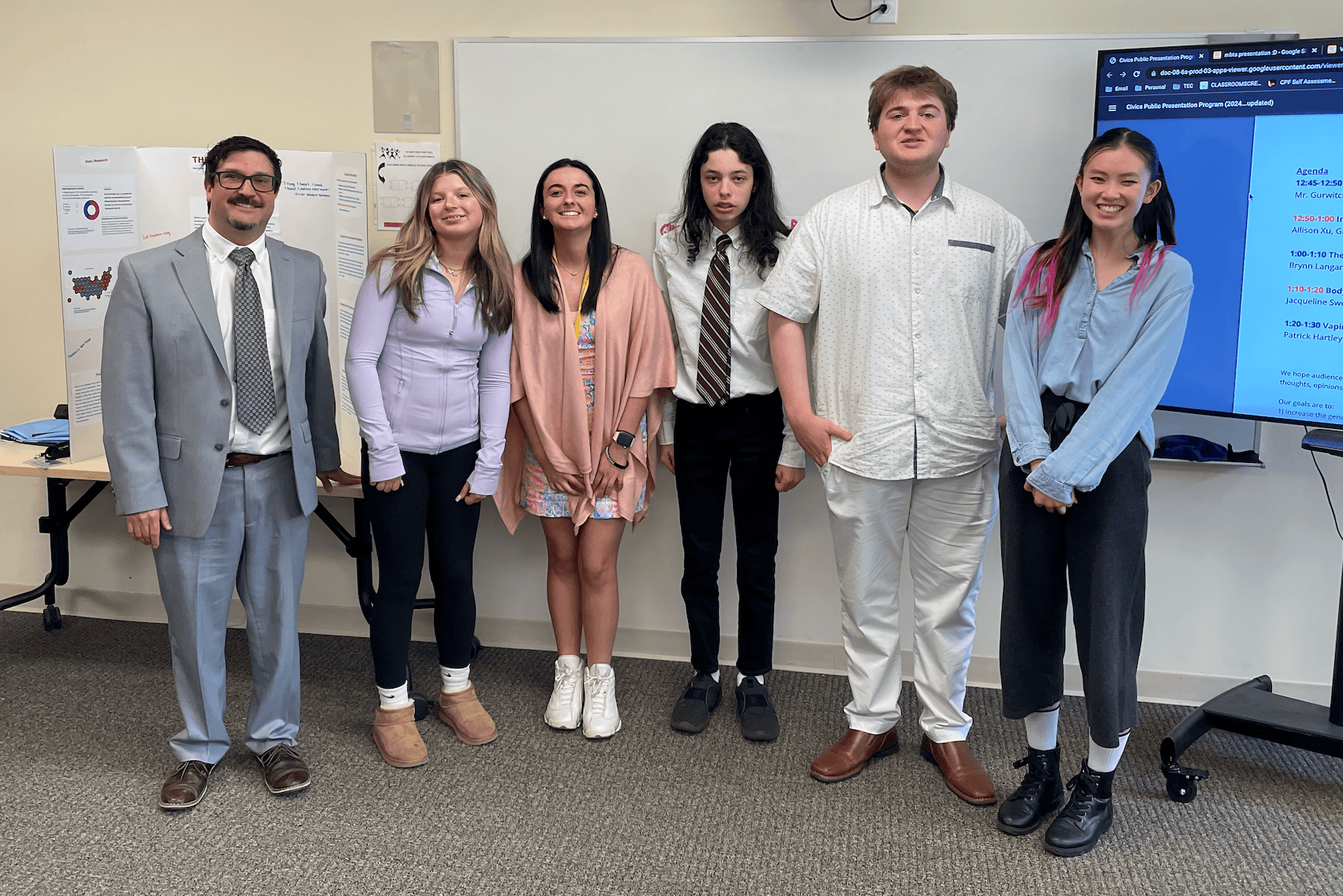In Massachusetts, Chapter 296 of the Acts of 2018, An Act to Promote and Enhance Civic Engagement requires student-led civics projects aligned to the 2018 History and Social Science Curriculum Framework. As the Department of Elementary and Secondary Education points out, all students will “complete a non-partisan, student-led civics project in Grade 8 and again during high school. These projects are rooted in action civics—a process of applying civic knowledge, skills, and dispositions to identify, research, and address community issues with the goal of preparing students to be thoughtful and active citizens.”
Dana Gurwitch has been teaching grade 8-12 Social Studies at TEC High School for twenty-two years and has developed a process for supporting students through their civics project that includes identifying a challenge they feel passionate about, brainstorming potential solutions, contacting stakeholders to propose and discuss solutions, and sharing their work and ideas with community members.

On Monday, May 13th, five students presented projects to community members in-person and online. Their goals, as Mr. Gurwitch highlighted, were to:
1. Increase the general public’s awareness of the issues
2. Generate open civil dialogue in an effort to:
– recruit interest
– find common ground
– seek new, viable solutions
– develop the social and political momentum needed to improve our community with respect to the topics under investigation
Mr. Gurwitch commented at how impressed he was with the choice of topics. “TEC High School students always take on rather heavy-hitting, important issues. And I was genuinely impressed with their tenacity in tracking down relevant representatives from both government and civil society.”
Topics included how to improve the MBTA, comprehensive gun safety reform in Massachusetts, the impacts of body shaming, and the pernicious problem of vaping in schools. Students respectfully shared their opinions, ideas, and efforts to contact stakeholders, then posed questions to the audience to engage the community in discussion.
Senior Matthew C. reflected, “In terms of civic engagement, for the first time I engaged in doing things like reaching out to politicians. Previously, I never had done that.” Senior Brynn L. noted, “I feel as if I did very well in expressing my feelings respectfully…in hopes of spreading awareness without offending others.”
The showcase was an excellent illustration of how students can understand their impact on and role in society, take action by raising awareness, and build their civic disposition by encouraging and engaging the community in civic discourse.

